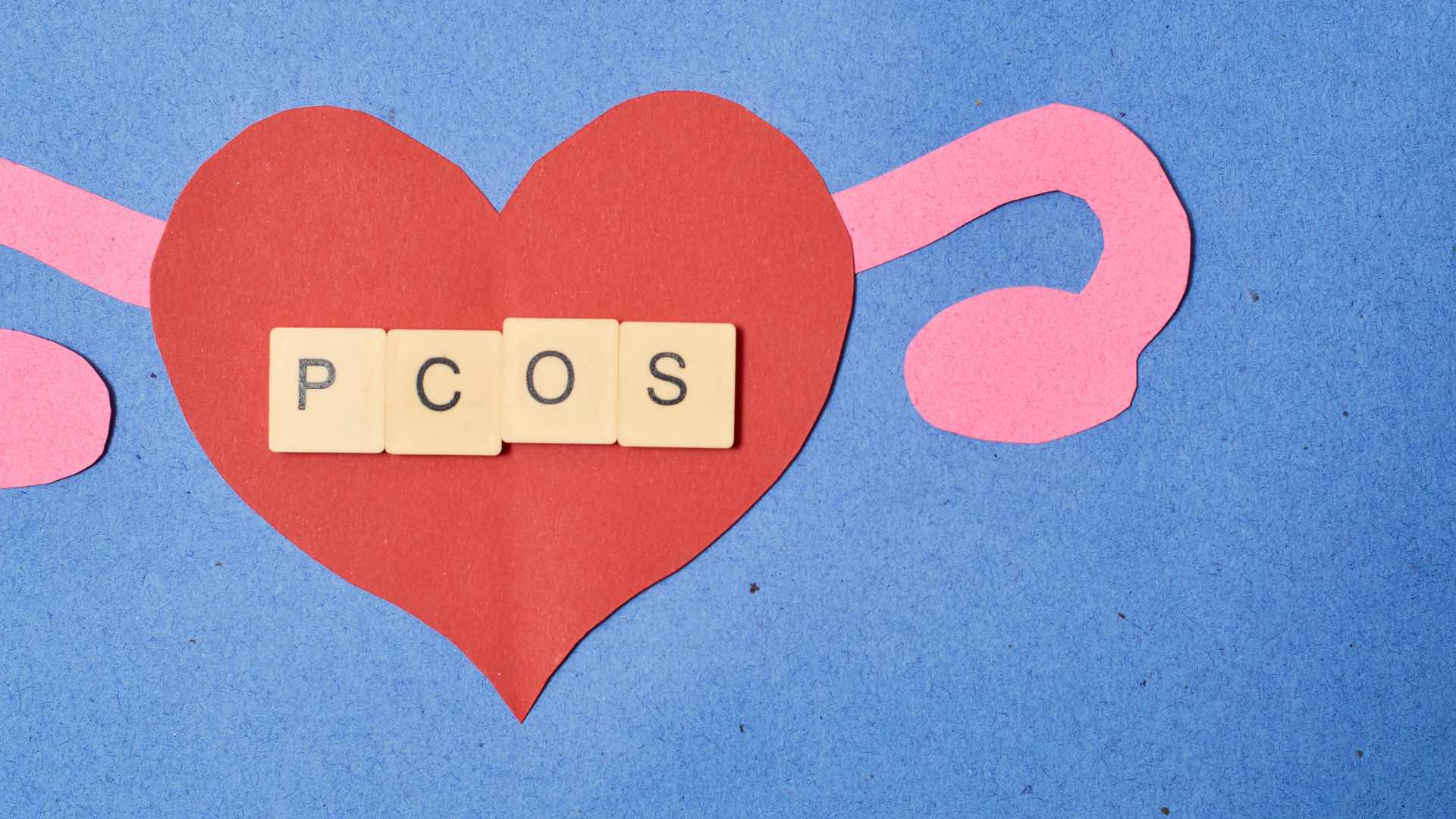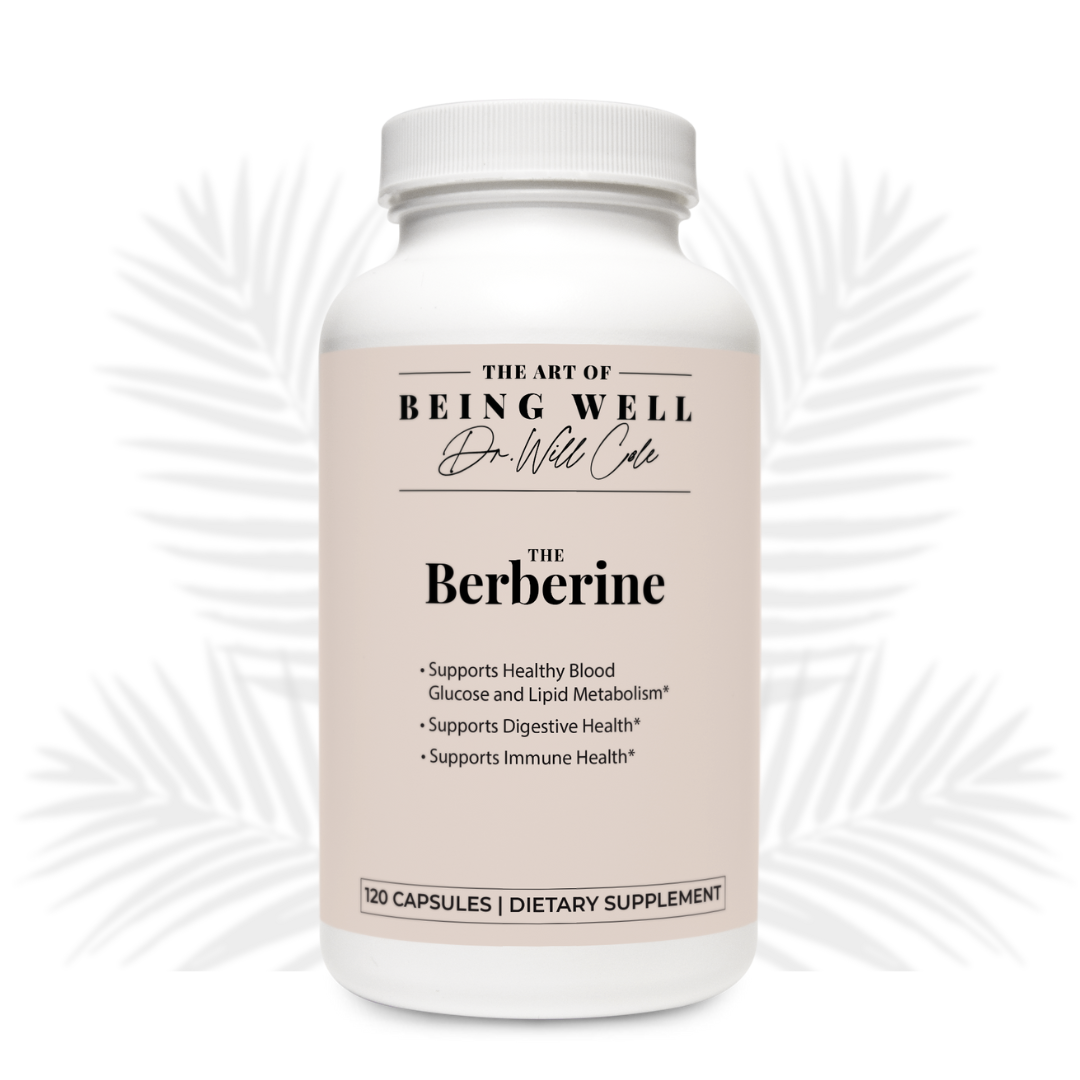How To Reverse PCOS Naturally: A Comprehensive Guide

Polycystic Ovary Syndrome (PCOS) is a complex hormonal disorder that affects millions of women worldwide. (1) While there is no known cure for PCOS, dietary and lifestyle changes can play a crucial role in managing its symptoms.
While it may not be possible to completely reverse your PCOS, there are plenty of factors to consider that may help you reverse the intensity of your symptoms and worsening of the condition. Some anecdotal reports of women do claim to have actually reversed the condition altogether, but much more science is needed to validate those claims.
Diet
The Importance of Blood Sugar Control
Women with PCOS are often insulin resistant, which can exacerbate hormonal imbalances and worsen symptoms. To combat this, focus on:
- Whole, unprocessed foods like vegetables, fruits, and whole grains
- Healthy fats like avocado, nuts, and seeds
- Lean protein sources like poultry, fish, and legumes
- Low-glycemic index foods that won't spike blood sugar
Hormone-Balancing Foods
Certain foods have a direct impact on hormone production and balance. Include these in your diet:
- Omega-3 rich foods like salmon and flaxseeds to reduce inflammation (consider supplementing here too)
- Antioxidant-rich foods like berries and leafy greens to combat oxidative stress
- Probiotic-rich foods like yogurt and kimchi to support gut health
- Healthy fats like olive oil and coconut oil to support healthy hormone regulation
- Bookmark this grocery list for an easy reference
Foods to Avoid
Some foods can trigger inflammation, worsen insulin resistance, and exacerbate PCOS symptoms. Limit or avoid:
- Processed and packaged foods
- Refined sugars and grains
- Saturated and trans fats
- Soy and dairy products (if sensitive)
Every woman with PCOS is unique, and what works for one person may not work for another. Consider:
- Consulting with a healthcare professional or registered dietitian for personalized guidance
- Keeping a food diary to track symptoms and identify trigger foods
- Exploring different diets like keto, paleo, or vegan to find what works best for you
- Consider plant-based keto, a double punch in the anti-inflammatory/hormone-balancing arena
Lifestyle Changes
The Power of Stress Reduction
Chronic stress can wreak absolute havoc on our health and it can greatly exacerbate PCOS symptoms and disrupts hormonal balance. If you’re combating PCOS, one of your top priorities needs to be finding healthy, regular ways to destress. And this doesn’t need to be expensive. The following are tried and true, evidence-based methods to reduce stress that you can participate in daily in as little as 10 minutes for $0.
- Yoga
- Meditation
- Breathwork
- Walking and other gentle exercise
Exercise for Hormonal Balance
Regular physical activity can improve insulin sensitivity, boost mood, and promote hormonal balance. Aim for:
- At least 2 or 3 hours of moderate-intensity exercise per week
- Regular strength training
- At least once-weekly high-intensity interval training (HIIT) or heavy breathing exercise
- Finding activities that bring joy and make exercise feel less like a chore. Consider things you loved doing as a child for an extra destressing effect like:
- Dance
- Swimming (bonus points for wild swimming!)
- Rec sports
- Classes with friends
- Exercise outdoors
Sleep and Circadian Rhythm
Poor sleep quality and disrupted circadian rhythms can worsen PCOS symptoms. Prioritize:
- 7-10 hours of quality sleep per night
- Establishing a consistent sleep schedule (darn you, Netflix)
- Creating a relaxing bedtime routine
- Put the phone away at least an hour before bed
- Turn the lights down as the sun sets (warm, smaller lights ok)
- Find rituals you love that will tell your body its time for bed like making warm herbal tea, playing soothing music, or reading a book
- Avoid screens altogether (darn you again, Netflix)
Environmental Toxin Avoidance
Exposure to environmental toxins like endocrine disruptors can trigger PCOS symptoms. Take steps to:
- Use non-toxic household cleaners (these don’t have to be expensive--vinegar and baking soda go a long way!)
- Use non-toxic personal care items and keep your routine simple
- Avoid plastics and opt for glass or stainless steel instead
- Choose organic produce when possible
- Filter water and air to reduce toxin exposure
- Don’t stress about controlling every small detail in life (that can make things worse). Instead focus on what you can control in your home, that will make the biggest difference!
Mindful Movement and Self-Care
Nurturing your mental and emotional well-being is crucial for PCOS management. Make time for:
- Activities that bring joy and relaxation (see joyful exercise section above)
- Connecting with loved ones and building a support network
- Practicing self-compassion and self-care
- Engaging in creative pursuits or hobbies.
Working with a Healthcare Team
Collaborate with a healthcare provider to develop a personalized lifestyle plan that addresses your unique needs and health goals. Consider:
- Regular check-ins to monitor progress and adjust the plan as needed
- Seeking guidance from a registered dietitian or functional health expert
- Exploring alternative therapies like acupuncture or herbal supplements
Learn More: How Holistic Health Is Empowering Women To Reclaim Their Wellness
Vitamins + Herbs
The power of alternative therapies, namely plant-based drugs, is extremely promising for sufferers of PCOS. (2) (3) With the guidance of a functional expert, you might consider a combination of the following:
- Inositol (myo- and D-chiro-)
IInositol, specifically myo-inositol (MI) and d-chiro-inositol (DCI), has been found to improve insulin sensitivity, hormone regulation, menstrual cycle regularity, fertility, and mental health in women with Polycystic Ovary Syndrome (PCOS). When taken under the guidance of a healthcare provider, inositol supplements can be a beneficial addition to a comprehensive treatment plan for PCOS, with recommended dosages of 2000-4000 mg MI and 50-100 mg DCI per day. - Berberine
Berberine has been found to improve insulin sensitivity, reduce androgen levels, and regulate menstrual cycles in women with PCOS, making it a potential natural treatment option for managing the condition's symptoms. With its anti-inflammatory and antioxidant properties, berberine may also help reduce the risk of metabolic and cardiovascular complications associated with PCOS, when taken under the guidance of a healthcare provider at a typical dosage of 500-1500 mg per day. - Cinnamon
Cinnamon has been shown to improve insulin sensitivity, reduce inflammation, and regulate menstrual cycles in women with PCOS, making it a potential natural treatment option for managing the condition's symptoms. Consuming 1-2 teaspoons of cinnamon powder per day or taking a 250-500 mg cinnamon supplement may help alleviate PCOS symptoms. - CoQ10
CoQ10, an antioxidant, has been found to improve egg quality, reduce oxidative stress, and enhance fertility in women with PCOS. Supplementing with 50-100 mg of CoQ10 per day may help improve reproductive outcomes and overall health in women with PCOS. - Omega-3s
Omega-3 fatty acids, particularly EPA and DHA, have anti-inflammatory effects and may improve insulin sensitivity, reduce androgen levels, and promote fertility in women with PCOS. Consuming 1-2 grams of combined EPA and DHA per day through fatty fish or supplements may help alleviate PCOS symptoms. - Chasteberry (Vitex)
Chasteberry, or Vitex agnus-castus, may help regulate menstrual cycles, improve fertility, and reduce symptoms of PMS in women with PCOS. Taking 400-500 mg of chasteberry supplement per day may help balance hormones and improve reproductive health. - Curcumin
Curcumin, a compound in turmeric, has potent anti-inflammatory and antioxidant effects, which may help reduce inflammation, improve insulin sensitivity, and regulate menstrual cycles in women with PCOS. Supplementing with 500-2000 mg of curcumin per day may help alleviate PCOS symptoms. - Saw Palmetto
Saw palmetto may help reduce androgen levels, improve insulin sensitivity, and regulate menstrual cycles in women with PCOS. Taking 160-320 mg of saw palmetto supplement per day may help balance hormones and improve reproductive health.
Read Next: 7 Natural Home Remedies For Dissolving Ovarian Cysts
Medication
Your doctor may recommend a protocol including pharmaceutical medication including
- Metformin (effective, but causes pretty bad digestive side effects for many women)
- Spironolactone (prevents male pattern hair growth, but can cause birth defects so can't be taken when trying to conceive or during pregnancy; eflornithine is an alternative but not as effective)
- Birth control (specifically, estrogen + progestin birth control may artificially regulate estrogen and androgen levels)
- Clomiphene (to ovulate)
If you’re not finding success with these methods, or interested in exploring additional ways to manage your symptoms, there is hope beyond the walls of your doctor’s office.
There Is Hope For Healing PCOS
PCOS is complex and frustrating, and finding effective treatment for its effects can bring on enough stress to make symptoms worse. Guidance from a team that has helped hundreds of women heal will help you land on a personalized treatment plan quickly and without the trial and error that can be the root of that frustration.
If you’re looking for help in your healing, scheduling a virtual consultation is the first step.
View More At Our Store
Purchase personally curated supplements
and Dr. Will Cole’s books!

- Deswal, R., Narwal, V., Dang, A., & Pundir, C. S. (2020). The prevalence of polycystic ovary syndrome: a brief systematic review. Journal of human reproductive sciences, 13(4), 261-271.
- Malik, S., Saeed, S., Saleem, A., Khan, M. I., Khan, A., & Akhtar, M. F. (2024). Alternative treatment of polycystic ovary syndrome: pre-clinical and clinical basis for using plant-based drugs. Frontiers in Endocrinology, 14, 1294406.
- Jung, W., Choi, H., Kim, J., Kim, J., Kim, W., Nurkolis, F., & Kim, B. (2023). Effects of natural products on polycystic ovary syndrome: From traditional medicine to modern drug discovery. Heliyon.
The information on this website has not been evaluated by the Food & Drug Administration or any other medical body. We do not aim to diagnose, treat, cure or prevent any illness or disease. Information is shared for educational purposes only. You must consult your doctor before acting on any content on this website, especially if you are pregnant, nursing, taking medication, or have a medical condition.
Our content may include products that have been independently chosen and recommended by Dr. Will Cole and our editors. If you purchase something mentioned in this article, we may earn a small commission.

BY DR. WILL COLE
Dr. Will Cole, DNM, IFMCP, DC is a leading functional medicine expert who consults people around the globe, starting one of the first functional medicine telehealth centers in the world. Named one of the top 50 functional and integrative doctors in the nation, Dr. Will Cole provides a functional medicine approach for thyroid issues, autoimmune conditions, hormonal imbalances, digestive disorders, and brain problems. He is also the host of the popular The Art of Being Well podcast and the New York Times bestselling author of Intuitive Fasting, Ketotarian, Gut Feelings, and The Inflammation Spectrum.

Gut Feelings
Healing The Shame-Fueled Relationship
Between What You Eat And How You Feel



